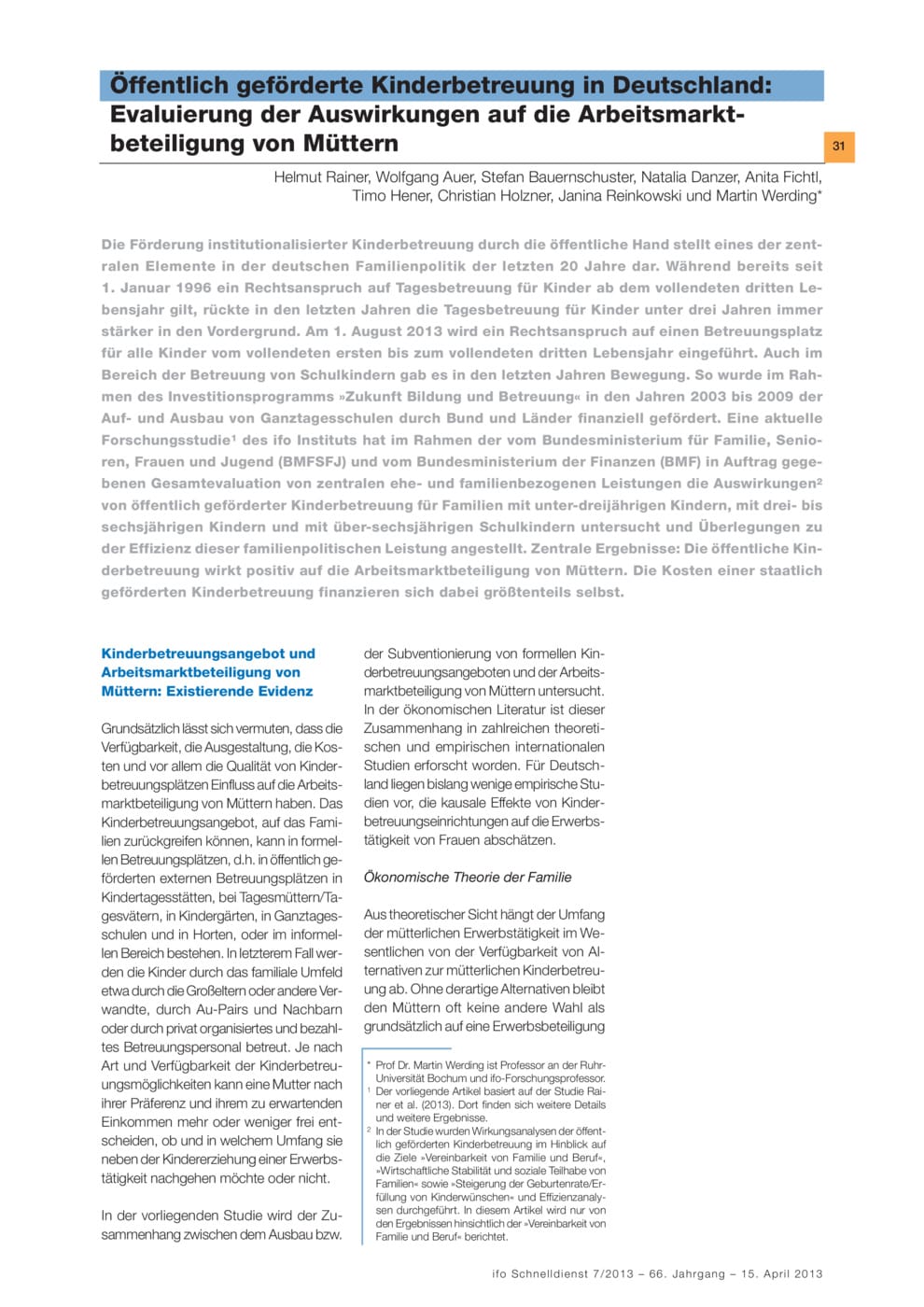Publicly-Subsidised Child Care in Germany: Evaluation of the Impact of the Labour Market Participation of Mothers
ifo Institut, München, 2013
ifo Schnelldienst, 2013, 66, Nr. 07, 31-40

Publicly-subsidised child care has been one of the central elements of German family policy for the last twenty years. A legal right to child care for children over the age of three was introduced as early as 1 January 1996, but more recently the spotlight has fallen on day care for infants under the age of three. On 1 August 2013 the legal right to a child care place for all children from the age of 1 year to the age of 3 years was introduced. There have also been developments in care for school children in recent years. An investment program entitled "Education and child care for the future", publicly subsidised by the federal government and the Länder, supported the introduction and expansion of all-day schools from 2003 to 2009. A recent research study by the Ifo Institute, which examined the impact of publicly-subsidised child care for families with children below the age of three, with children aged three to six years and with school children older than six years, shows that state-financed child care has a positive impact on the labour market participation of mothers. The costs of publicly-subsidised child care are therefore largely self-financed.